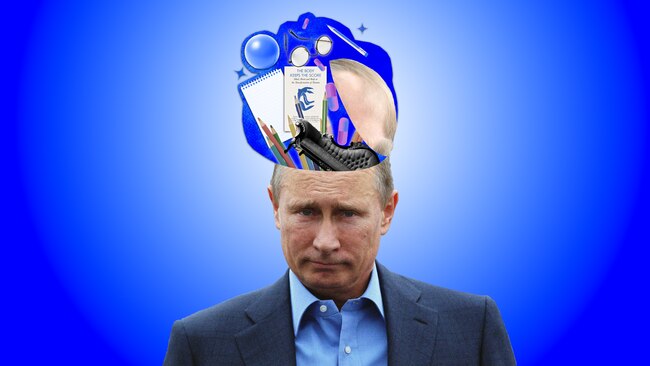Our addiction to therapy speak is making us happier
It’s easy to sneer at ‘pop psychology’ but adopting the language of Freud has made us happier, says James Marriott

OPINION: It’s easy to sneer at ‘pop psychology’ but adopting the language of Freud has made us happier, says James Marriott
It was not a masterpiece of psychoanalytical exposition. Last week Ben Wallace, the UK defence secretary, traced the origins of Vladimir Putin’s murderous war of conquest in eastern Europe to the Russian president’s “small man syndrome” and “toxic masculinity”.
Until that interview, the discourse of diplomacy had generally resisted the rise of therapy-speak.
Today the pop psychological interpretation is the default interpretation. Nobody, nowadays, escapes the magnetic influence of Dr Freud: not Putin, not you. Try to find an actor without a theory about how his or her “attachment issues” contributed to awards season success. Or a politician who would balk at turning to psychology either for sympathy (Keir Starmer’s dad only once said he was proud of him) or as a useful rhetorical weapon (none of Boris Johnson’s enemies will ever forget he once wanted to be “world king").
Even as the novel has declined, its central narrative principle - plausible psychological motivation - has captured cruder forms such as the superhero film, which used to be content to field casts of unreflecting Manichean automata: Superman good, Lex Luthor bad; Batman good, Joker bad; etc. But modern audiences demand psychology. And so the 2019 film Joker introduced the sub-Freudian idea that the Joker’s villainy is rooted somehow in his childhood mental health issues. And with every 007 film, James Bond acquires traumas and psychic scars at a rate usually only observed in inhabitants of Albert Square in EastEnders.
Most attempts at pop psychological diagnosis are at least a little preposterous, tending to draw overconfident straight lines through the crazy patterns of complex lives. Sometimes the tendency is even malign - witness the modern habit of denouncing all one’s colleagues and enemies as “toxic” while endorsing oneself as an embattled but virtuous outpost of teetering mental health.
And yet, absurd as tales of Captain America’s struggles with his Oedipus complex (or whatever) may be, the psychologising impulse is valuable. We forget how occluded our ancestors once found their psychology and motivations to be. A friend reading Thomas De Quincey’s Confessions of an English Opium-Eater remarked to me that De Quincey appears to believe that his opium addiction can be traced to the fact he wasn’t taught classics correctly at school - not, as a modern therapist would suggest, to the death of his parents or the fact he was raised by uncaring strangers. We are fortunate that this seems obvious.
The moral and theological interpretations of human psychology that preceded the Freudian revolution tended to condemn the introspective to circular journeys of self-accusation and despair. Today most people have at least a passing exposure to a system of self-interpretation that will bring them much closer to the truth and thence to freedom.
In its early decades therapy-talk was bedevilled by elitist pedantry - the suave deployment of phrases such as “penis envy” and “countertransference” at a Manhattan cocktail party proved to your fellow guests that you were an authentic initiate of the analyst’s couch. One of the least convincing criticisms of pop psychology is that the “pop” part is bad. Nobody who has read very far into the work of Carl Jung can sustain the idea that intellectual proximity to the fathers of psychoanalysis is an inevitable guarantee of sane and lucid advice.
In Britain therapy is more popular than it ever has been. And as therapy has democratised it has diluted into cliche and become more useful. Most people grasp therapy-speak’s central platitudes: our childhoods shape us, we are propelled by unconscious as well as conscious motivations, talking all about this can help.
Well, they’re platitudes now but as is sometimes pointed out, they derive remarkably directly from the initial insights of Freud. These ideas are the ones that have survived a century-long test of common sense and increasingly also survive the test of science - various studies have shown that reflecting on traumatic events can make you happier and the Freudian model of the unconscious is taken more seriously now than it has been for decades. Freud’s more baroque and superficially impressive ideas (penis envy, the death drive) have proved less susceptible to the endorsement of the laboratory.
Original psychological insight is rare. Because most of us are condemned to talk in cliches, the quality of our cliches matters. There are many execrable truisms floating around in English. But in talking the language of Freud - however crassly - I think we are lucky.
Alternatively, if you think therapy is a crock of shit, perhaps this is more up your alley.


